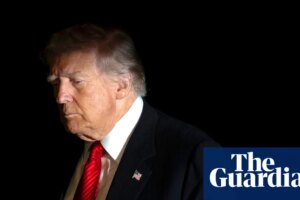
Several public opinion surveys published over the last few months paint a picture of China’s role in the world from the perspective of both Chinese and international respondents. These build on previous surveys from the past year that show how despite polarized views, global attitudes towards China have improved at the expense of the U.S., especially in the Global South. (Meanwhile, polls showing dissatisfaction within China have been censored online.)
One notable survey published this month by Dina Smeltz, Craig Kafura, Yawei Liu, Nick Zeller, and Sam Dong at the Chicago Council on Global Affairs tracked Chinese people’s confidence in China and their desire for their country to play a global leadership role. Conducted between April 25 and June 16, the survey found that a “key difference between Chinese views of Beijing’s role in the world compared to American views of Washington’s role is that China’s public support is widespread across all demographic groups, while the public in the United States is much more fragmented, especially by partisan affiliation.” Here is a summary of the main findings:
Nine in 10 Chinese support their country’s active participation in world affairs (90%).
Part of this enthusiasm stems from a sense that China is a leading power in the world: Large majorities say their country is in at least a somewhat strong position in the world (97%) and expect it to get at least somewhat stronger in the next five years (95%).
Seven in 10 Chinese respondents say China has a unique character that makes it the greatest country in the world (69%) versus three in 10 who say China is no greater than any other country (30%).
While a plurality prefer China play a shared leadership role in the world (48%), four in 10 say it should take a dominant one (41%). One in 10 feel China should play no leadership role (11%). [Source]
On a related topic, last week Haifeng Huang of Ohio State University shared an updated academic paper analyzing the Chinese public’s overconfidence in their country. Huang conducted studies during and after the COVID-19 pandemic and concluded that the Chinese public “widely and significantly overestimates China’s global reputation and soft power,” adding that “informing Chinese citizens of actual international public opinion of China substantially corrects their factual perceptions of the country’s global reputation.”
Outside of China, surveys show mixed results about public opinion on China. Andrew Chubb at the Asia Society Policy Institute published a report last week on this topic, using 25 years of aggregated global public opinion survey data across 159 countries. With this historical, long-term lens, the report’s key findings highlighted China’s challenges of winning over a global audience:
An expanding databank of surveys shows that favorability toward China has seen a steady, secular decline over the past quarter-century.
However, weighting surveys according to population demonstrates important nuances. The long-term decline in China’s image appears to have been driven by rising negativity more than falling positivity. This pattern suggests that, rather than losing friends, China has been struggling to win over citizens with undecided or neutral views.
[…] The largest and tightest cluster of negative opinion on China is not in America but in Europe, posing serious economic and political challenges as China responds to the Trump administration’s tariff and technology policies. [Source]
However, over a more recent time period, China has been making steady gains. The U.S.-based center-left think tank Third Way published a poll last month showing a change in Americans’ attitudes towards China from 2023 to 2025 in favor of more cooperation. The report stated that “52% of respondents to the 2025 survey chose cooperation over combat vs 32% in 2023,” and “the share of Americans who describe China as an enemy has declined by 7 points” while “the share seeing China as an ally or trade partner has increased by 8 points.” In July, the Pew Research Center published another survey which found that international views of China have turned slightly more positive in various regions of the world, often at the expense of the U.S.:
Views of China have become more favorable since 2024 in 15 of 25 countries surveyed. This includes double-digit increases in places like Canada and France (+13 points) as well as Italy and South Africa (+10).
[…] In most countries, younger people have more favorable opinions of China than older people.
[…] While majorities in most countries surveyed have little or no confidence in Xi to do the right thing regarding world affairs, confidence in him has increased since last year in 16 of the 25 countries surveyed.
[…] In every country surveyed in sub-Saharan Africa and Latin America, China is one of the top three most-mentioned allies.
[…] South Africans today are significantly more likely to name China than the U.S. as their country’s most important ally. (45% vs. 28%). But in 2019, the U.S. was the most common response, followed by China.
The trend in Indonesia is similar. In 2019, Indonesians were more than twice as likely to name the U.S. than China as their country’s top ally (16% vs. 6%). But today, more name China than the U.S. [Source]
To the extent that these surveys demonstrate a slight improvement in global public opinion towards China at the expense of the U.S., this reflects natural changes in public perceptions regarding how each country has acted on the international stage. However, the perception of their performances is mediated through information environments which can sometimes be deliberately distorted by state actors for political purposes. Alex Yu-Ting Lin published an academic article last month showing that Chinese information campaigns that attempt to delegitimize the U.S. tend to reduce the respondents’ assessment of U.S. status in the world. (Both the U.S. and Chinese governments have leveraged AI to target overseas audiences in global influence operations against each other.)





